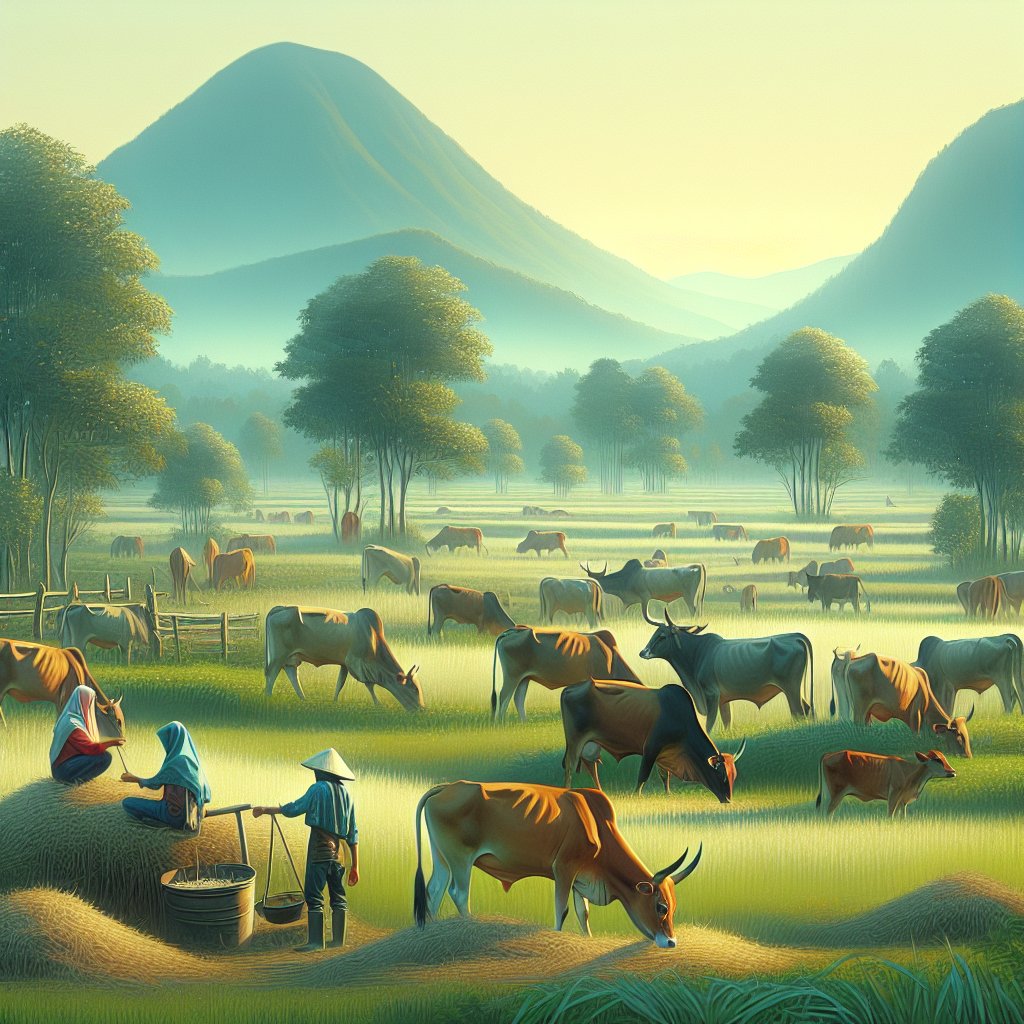
Raising cattle for beef production on small farms can be a rewarding endeavor, offering both economic benefits and a sustainable way to manage land resources. However, it requires careful planning, knowledge, and dedication to ensure success. This article provides insights and practical tips for small-scale farmers looking to venture into beef cattle farming, covering essential aspects such as selecting the right breed, managing nutrition, and ensuring animal welfare.
Selecting the Right Breed
Choosing the appropriate breed of cattle is a critical first step in beef production. The breed you select will significantly influence the quality of beef, growth rates, and overall profitability of your operation. There are several factors to consider when selecting a breed, including climate adaptability, feed efficiency, and market demand.
Climate Adaptability: It’s essential to choose a breed that can thrive in your farm’s specific climate conditions. For instance, breeds like Angus and Hereford are well-suited for temperate climates, while Brahman cattle are more tolerant of heat and humidity, making them ideal for warmer regions.
Feed Efficiency: Some breeds are more efficient at converting feed into body mass, which can reduce feeding costs and improve profitability. Breeds such as Limousin and Charolais are known for their excellent feed conversion ratios, making them popular choices for beef production.
Market Demand: Understanding the preferences of your target market is crucial. Certain breeds may be more popular in your area due to their meat quality or specific characteristics. Conducting market research can help you identify which breeds are in demand and align your production with consumer preferences.
Managing Nutrition
Proper nutrition is vital for the health and growth of beef cattle. A well-balanced diet ensures that cattle reach their full growth potential and produce high-quality beef. Nutrition management involves providing the right balance of forage, grains, and supplements to meet the animals’ dietary needs.
Forage: Forage, such as grass and hay, should form the foundation of your cattle’s diet. It provides essential nutrients and fiber necessary for healthy digestion. Rotational grazing can help maintain pasture quality and ensure a consistent supply of fresh forage.
Grains and Supplements: While forage is crucial, grains and supplements can enhance growth rates and improve meat quality. Corn, barley, and oats are common grains used in beef cattle diets. Additionally, mineral and vitamin supplements can address any nutritional deficiencies and support overall health.
Water Supply: Access to clean and fresh water is essential for cattle health. Ensure that water sources are regularly checked and maintained to prevent contamination and ensure adequate hydration.
Ensuring Animal Welfare
Animal welfare is a fundamental aspect of beef production, impacting both the ethical standards and productivity of your farm. Ensuring the well-being of your cattle involves providing proper housing, healthcare, and handling practices.
Housing: Cattle require shelter to protect them from extreme weather conditions. Providing adequate housing, such as barns or windbreaks, can help maintain their comfort and reduce stress levels.
Healthcare: Regular veterinary check-ups and vaccinations are essential to prevent diseases and maintain herd health. Implementing a herd health management plan can help identify potential health issues early and reduce the risk of outbreaks.
Handling Practices: Gentle and humane handling practices are crucial for reducing stress and ensuring the safety of both cattle and handlers. Training staff in low-stress handling techniques can improve animal welfare and productivity.
Conclusion
Raising cattle for beef production on small farms requires a comprehensive understanding of breed selection, nutrition management, and animal welfare. By carefully considering these factors and implementing best practices, small-scale farmers can achieve a successful and sustainable beef production operation. With dedication and attention to detail, raising cattle can be a profitable and fulfilling venture that contributes to the local food supply and supports rural economies.

